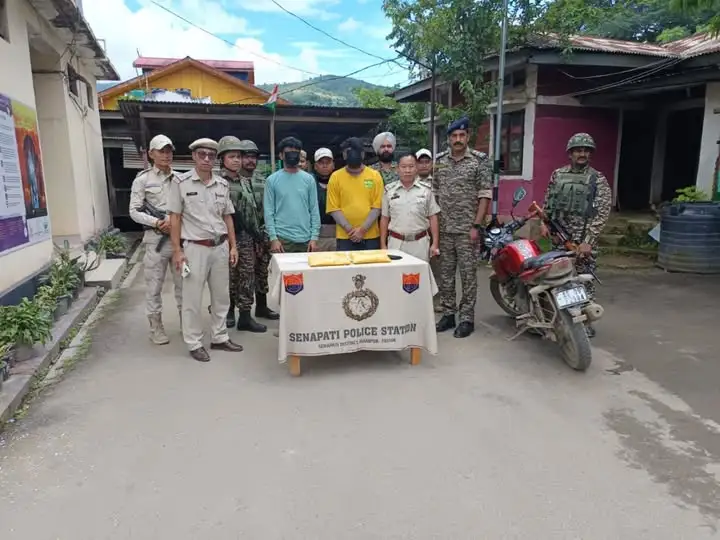Frequent Flyer PM Modi Off to Kuwait While People of Manipur Wait – A Closer Look at India’s Political Dynamics
Short Summary:
In recent headlines, Prime Minister Narendra Modi’s frequent travels have raised eyebrows, particularly his visit to Kuwait while the unrest in Manipur continues to unfold. While Modi focuses on international diplomacy, the people of Manipur, caught in an ongoing crisis, wait for more substantial attention from their leadership. This situation has ignited debates within political circles, with opposition parties criticizing the government’s priorities.
Introduction: A Nation in Tension, A Leader on the Move
When the headlines scream of turmoil, one would expect a nation’s leader to be on the frontlines, solving the issues plaguing its people. However, when India’s Prime Minister, Narendra Modi, boarded a flight for Kuwait amid the ongoing crisis in Manipur, it raised more than a few eyebrows. Is it fair for a leader to focus on international relations while citizens of his own country suffer?
This situation places a spotlight on the government’s response—or lack thereof—to domestic issues. The disconnect between the international stage and the national chaos that some states are enduring creates a rift in public perception. It’s a dichotomy that leaves many wondering: Should a nation’s leader be more concerned with global politics than the pressing issues of his own people?
The Dilemma of Global Diplomacy vs. Domestic Discontent
Modi’s frequent international travels have often been praised for boosting India’s global stature. But critics argue that such engagements, particularly when they coincide with national crises, highlight a lack of empathy toward domestic issues. Manipur, a state in the northeastern part of India, has faced severe unrest, with violent clashes and the displacement of thousands. The people of Manipur are waiting for a response from their elected officials, yet the spotlight shifts away, with the Prime Minister’s international itinerary taking precedence.
This raises a crucial question: can a leader effectively balance the demands of global diplomacy and the immediate needs of his own country’s citizens? It’s almost like focusing on the decor of a house while neglecting its foundation—appealing, but ultimately unsustainable.
The People’s Outcry: Manipur’s Struggle for Attention
The situation in Manipur has escalated to the point where the state’s residents are increasingly vocal about their demands for action. With ongoing violence and displacement, the response from the state and central government has been sluggish at best. In this context, the optics of the Prime Minister’s trip to Kuwait seem to further alienate the people of Manipur, who feel overlooked.
Is it fair for them to expect the Prime Minister’s immediate attention? Many would argue that this is precisely what a leader is supposed to do—balance the needs of international diplomacy with the urgent concerns of the populace.
Why International Trips Can’t Always Take Priority
We all know that diplomacy is vital in today’s interconnected world. But, when does it become excessive? When a national leader spends more time abroad than addressing domestic crises, it creates a perception of detachment. Some would argue that it’s essential for leaders like Modi to engage on the world stage, especially with issues such as regional security and economic partnerships.
Yet, the question lingers: can the same energy be channeled into handling internal issues? If the government is constantly navigating global waters, who is steering the ship at home?
Political Backlash: The Opposition Weighs In
The opposition parties, especially the Congress, have been vocal about their disapproval of Modi’s focus on foreign relations. They argue that while international visits may be important, the citizens of Manipur deserve at least the same level of attention. For many, it’s an issue of governance. Should a nation’s leader prioritize international relations when domestic turmoil needs urgent attention?
This backlash doesn’t just come from political opponents but also from a broader section of society that feels the government’s priorities are misaligned.
The Broader Implications of a Leadership Divide
The current debate between global diplomacy and domestic crises is not a new one. History shows us that a leader’s focus can have a significant impact on national stability. When the people feel ignored by their government, discontent can spread like wildfire. The people of Manipur’s cries for help could resonate across other states if the issue isn’t addressed quickly and decisively.
But let’s step back and consider the broader impact. Could this apparent divide create long-term damage to public trust? Will the image of a Prime Minister focused more on the global stage than the domestic issues weaken the government’s credibility?
A Fine Line Between Diplomacy and Governance
While some may argue that international trips are a form of statecraft, designed to build India’s global influence, others believe the primary responsibility of a leader lies with their people. The challenge, then, is striking the right balance between both. A country cannot thrive if its leader is absent in times of need, and a people cannot prosper if they feel left behind by the very government meant to protect them.
Conclusion: Striking a Balance Between Global and Local Priorities
At the end of the day, the real question is: can a leader truly succeed if they aren’t present for their people when the going gets tough? Modi’s frequent travels, while perhaps beneficial to India’s image abroad, raise concerns about his domestic priorities. The people of Manipur are asking for help, and the world continues to wait for diplomatic moves. A nation’s leader must balance both, for in the end, it is the well-being of the citizens that should be the ultimate measure of success.
FAQs:
- Why did PM Modi go to Kuwait while Manipur is in crisis? PM Modi’s visit to Kuwait is part of his regular international diplomacy, but critics argue it comes at the cost of addressing domestic issues like the unrest in Manipur.
- How does PM Modi’s frequent travel affect his leadership? Some believe his international focus might alienate citizens facing domestic crises, while others argue that strengthening global ties benefits the nation in the long run.
- What is happening in Manipur? Manipur has been experiencing severe unrest, with ethnic violence leading to displacement and a growing humanitarian crisis.
- How have opposition parties reacted to PM Modi’s travels? Opposition parties, especially Congress, have criticized Modi for prioritizing foreign trips over addressing the domestic unrest in Manipur.
- Can a leader effectively manage both global and local issues? Balancing global diplomacy with addressing local crises is challenging, but a leader’s ability to manage both can greatly influence their success and public perception.




